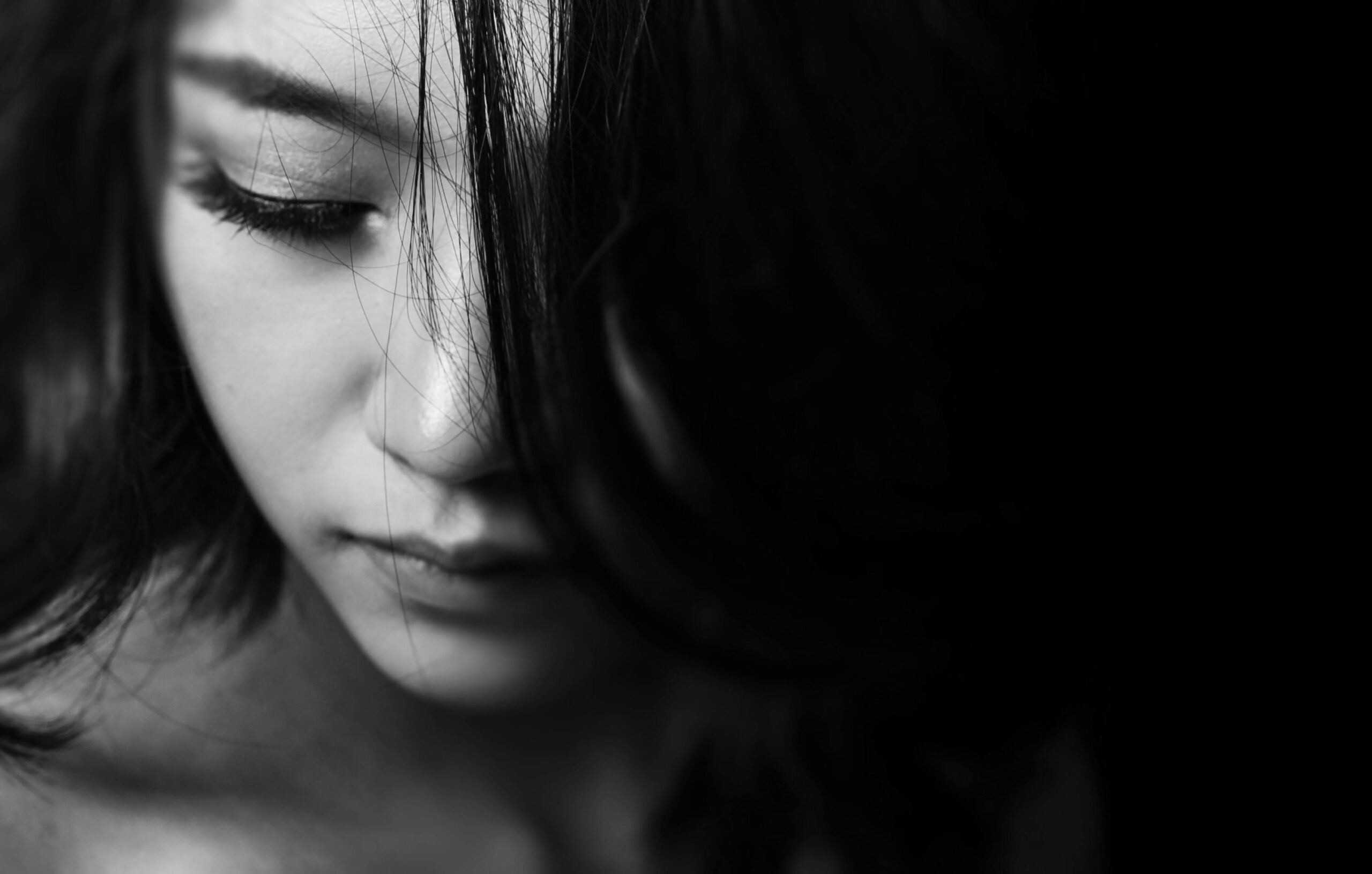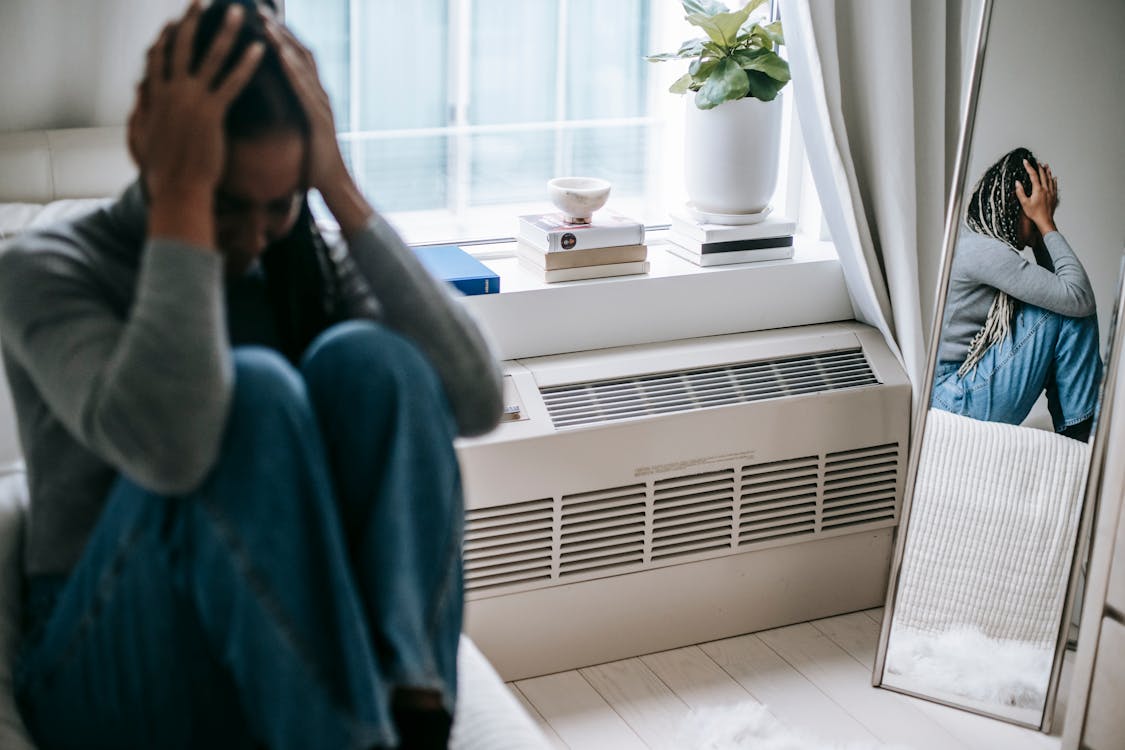5 Emotional Wounds Women Carry Into Relationships When They’re Unloved As Children

Childhood emotional wounds don’t just fade away with time—they have a sneaky way of following us into adulthood, shaping how we connect with others and even how we see ourselves. If you’ve ever wondered why certain patterns keep showing up in your relationships, the answer might lie in the past. For many women, the experience of feeling unloved as children creates emotional scars that silently influence their lives for years to come.
Think about it—society paints this picture of parents as perfect providers of unconditional love, but real life is rarely that simple. Parents are human too, and they often carry their own baggage: unresolved trauma, mental health struggles, or simply the weight of trying to keep it all together. When these struggles take over, a child’s emotional needs can get lost in the shuffle, leaving them feeling overlooked or unworthy of love.
And here’s the thing—kids don’t have the tools to make sense of all this. They blame themselves, thinking they’re the problem, and those beliefs can stick around long after childhood. If you’ve ever caught yourself feeling unworthy, unsure, or overly protective in relationships, it might not be “just the way you are.” It could be an echo of those early wounds.
The Ripple Effects of an Unloved Childhood
When children grow up feeling unloved, they’re often forced to figure life out on their own—far earlier than they should. They learn to navigate not only their parents’ emotional instability but also the daunting task of managing their own feelings, understanding social norms, and developing a moral compass. Without proper guidance, this overwhelming responsibility can create confusion and distort their understanding of themselves and the world around them.
For many women, the emotional weight of an unloved childhood lingers well into adulthood. This isn’t to say men don’t carry similar wounds, but women often process emotions differently, making them more likely to carry unresolved pain for years. While men may approach their childhood challenges more pragmatically over time, women often feel the effects deeply in their personal relationships, shaping how they give and receive love.
These unprocessed wounds can influence everything, from how women approach trust to how they handle conflict or seek validation. Until the pain is acknowledged and addressed, it seeps into every corner of their emotional lives, coloring relationships with partners, friends, and even themselves. Healing these scars is a journey—but it’s one that starts with understanding their root causes.
5 Emotional Wounds Women Carry Into Relationships
 Image source: Shutterstock
Image source: Shutterstock
The pain of an unloved childhood often leaves behind emotional scars that subtly but powerfully shape adult relationships. These wounds influence how women perceive love, trust, and their own self-worth, creating challenges that can feel insurmountable without recognition and healing. Below are five common emotional wounds women carry into relationships, along with how they manifest and affect their ability to connect.
1. Attachment Issues
When love and support from a parent are inconsistent or absent, a child’s sense of security in relationships is deeply affected. Instead of seeing relationships as safe and dependable, she learns to associate them with uncertainty and rejection. This creates a painful paradox: as an adult, she may desperately crave connection while teaching herself to remain emotionally self-reliant. In romantic relationships, this often manifests as anxiety, fear of abandonment, and difficulty trusting her partner’s intentions. The lingering belief that rejection is inevitable keeps her in a constant state of emotional vigilance.
2. Trust Issues
For children who grow up without dependable parents, trust becomes a fragile concept. If a parent repeatedly fails to provide comfort or pushes the child away in times of need, the message is clear—others cannot be relied upon. This belief follows her into adulthood, leading to relationships filled with skepticism and hesitation. The fear of being let down or hurt makes it difficult to rely on others, even those who genuinely care for her. As a result, she may push people away or struggle to build deep, meaningful connections.
3. Difficulty with Boundaries
Healthy boundaries are learned early in life, often modeled by parents who respect both their child’s needs and their own. However, when a parent disregards a child’s autonomy—whether by being overly controlling or neglectful—the child grows up with a skewed understanding of personal space and independence. As an adult, she may struggle to maintain her boundaries, often overextending herself to please others. At the same time, she might misinterpret others’ need for space as rejection, leading to feelings of inadequacy and frustration in relationships.
4. Fear of Failure
A hypercritical or punitive parent often teaches a child that love and approval must be earned through perfection. When mistakes are met with harsh criticism or indifference, the child internalizes a deep fear of failure. In adulthood, this fear can dominate her emotional landscape, leaving her feeling unworthy of love or success unless she meets impossibly high standards. This fear can also create intense pressure in relationships, as she strives to avoid making mistakes or disappointing her partner, often at the expense of her own happiness.
5. Poor Sense of Self
A child who grows up with little validation or affection from their parent often struggles to develop a strong sense of self-worth. Without consistent approval, she begins to believe she is unlovable or inherently flawed. As an adult, this poor self-image can lead to a cycle of self-doubt, insecurity, and the constant need for reassurance in relationships. She may settle for less than she deserves or overcompensate by putting others’ needs ahead of her own, all in an attempt to prove her worthiness.
Understanding these emotional wounds is the first step toward healing. By recognizing their impact, women can begin to challenge the beliefs that hold them back and work toward building healthier, more fulfilling relationships.
Consequences of Childhood Emotional Wounds
 Image source: Pexels
Image source: Pexels
Emotional wounds from an unloved childhood don’t just stay in the past—they often ripple out into adulthood, shaping a woman’s behavior, emotional health, and even her life choices. The way these wounds manifest can depend on the source of the hurt, particularly whether they stemmed from a mother or father. When fathers are absent or emotionally neglectful, the impact can be especially profound.
1. Higher Risk of Depression
A strained or absent relationship with a father often leaves daughters grappling with low self-esteem and unresolved sadness. Without a strong father figure to validate and support them, many women internalize feelings of rejection or inadequacy. This emotional burden can lead to depression, as they struggle to process or even understand the depth of their sadness. In relationships, this often translates into difficulty forming healthy bonds or constantly seeking validation from others.
2. Increased Vulnerability to Eating Disorders
For some women, the void left by a distant or absent father is filled with unhealthy coping mechanisms, like overeating. Studies show that daughters without a strong father figure are twice as likely to develop obesity, using food as a way to soothe emotional emptiness. On the other end of the spectrum, some women develop eating disorders such as anorexia or bulimia, believing that if they were “perfect” enough—thin enough—they might have been worthy of their father’s love. These distorted beliefs can create a lifelong battle with body image and self-worth.
3. Earlier Sexual Relationships
The lack of a father’s affection often pushes daughters to seek male approval in other ways. For many, this leads to entering sexual relationships at an early age, driven by a need for attention, validation, or a sense of being desired. Without the foundational love and guidance a father provides, these women may equate physical intimacy with emotional connection, leaving them vulnerable to unhealthy or imbalanced relationships.
4. Greater Likelihood of Addiction
The emotional pain of feeling unloved often becomes unbearable, and many turn to substances as a way to cope. According to the U.S. Department of Health and Human Services, children without father figures are significantly more likely to use drugs or engage in criminal behavior. For daughters, substance abuse often serves as a numbing agent, helping to dull the ache of rejection and emotional neglect. Unfortunately, this can spiral into further isolation and self-destruction, compounding the very pain they sought to escape.
These consequences highlight the far-reaching effects of childhood emotional wounds. Recognizing their origins is key to breaking free from the patterns they create. While the scars may run deep, they don’t have to define the future—with awareness and healing, it’s possible to rewrite the narrative and embrace a healthier, more empowered life.
How to Heal Your Unloved Inner Child
 Image source: Pexels
Image source: Pexels
Healing the wounds of an unloved childhood requires revisiting your past with honesty and compassion. Writing can be a powerful tool in this process, allowing you to structure your memories and gain clarity about what happened. Putting your experiences into words helps you see beyond the overwhelming emotions, offering the chance to understand events in context and release pent-up feelings. It’s not just about recounting the pain but finding a way to make sense of it and begin letting it go.
Another way to reframe your perspective is by looking at old photographs or mementos from your childhood. Often, the narratives we’ve carried for years—of being “not good enough” or “unworthy”—don’t align with reality. Photographs or report cards can reveal truths that challenge those harsh labels, showing that you weren’t as flawed as you may have been led to believe. This process can help you see yourself through a kinder, more accurate lens, freeing you from the lies that shaped your self-perception.
Reassessing your current relationships is equally important. Emotional wounds often resurface in adult connections, drawing you to people who reflect the dynamics of your childhood. If a relationship leaves you feeling inadequate or undervalued, it’s worth examining whether it mirrors old patterns. By recognizing these cycles and setting clear boundaries—especially with parents who may still intrude on your emotional space—you take back the control you lacked as a child. This process of reflection and boundary-setting is challenging but essential for healing, empowering you to build healthier, more balanced connections rooted in mutual respect and self-worth.
Overcoming Childhood Emotional Wounds
Healing the emotional scars of an unloved childhood is a challenging but transformative process. The fact that you’ve endured and continued to fight for a better life is a testament to your strength and resilience. These wounds may feel overwhelming, but they don’t define your future. With effort, self-compassion, and the right support, you can nurture your inner child and grow into the loving, balanced adult you deserve to be.
Seeking help from a counselor or therapist can be a crucial step in this journey. They can provide guidance to process unresolved emotions, reframe limiting beliefs, and build confidence. Healing takes time, but every step forward helps you create a life filled with healthier relationships and greater self-worth. Remember, your past may shape you, but it doesn’t have to hold you back.
Featured image source: Pexels
Loading...






